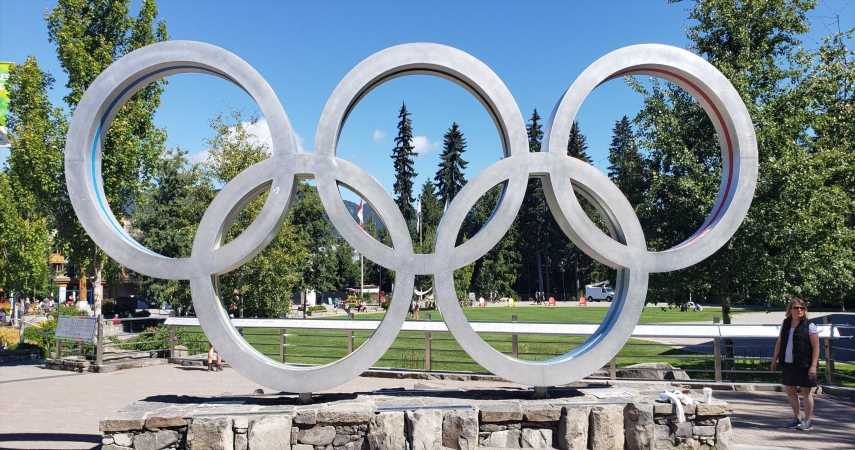The Olympic Games are a four-year global sporting event alternating between the Summer and Winter Games. Athletes compete in various sports worldwide, showcasing their skills and striving for excellence. The Games promote values of friendship, respect, and personal achievement. Hosted by a different city each time, the Olympics involve elaborate opening ceremonies, lighting the Olympic flame, and a torch relay. While they bring economic benefits and cultural exchange, there are also concerns about costs and social impacts. The Paralympic Games provide a similar platform for athletes with disabilities.
RELATED: 15 Olympic Athletes Who Spend Their Paychecks On Too Many Cars
8 1996 Atlanta Summer Olympics, United States: -$2 billion
A post shared by Junho Jang張 (Jeff Jang) (@jun_ho_jeff)
The 1996 Summer Olympics in Atlanta were a significant change because they cost around $2 billion. With events like Muhammad Ali lighting the torch, these Games emphasized business and funding. Changes were made, like letting people buy tickets online. But the blast at Centennial Olympic Park made people worry about safety. The event showed how good athletes can be and how hard it is to host significant world events.
7 1992 Barcelona Summer Olympics, Spain: -$11 billion
A post shared by @dipsflips
In 1992, the Barcelona Summer Olympics in Spain marked a significant shift. The Games’ price tag of $11 billion has sparked a metamorphosis of the city, with urban renewal being its most enduring legacy. Barcelona displays its historical significance and lively spirit on a global platform, hosting international competitors. Featuring remarkable structures, the gathering brought attention to the Olympic Stadium and the striking Montjuïc Communications Tower. This global event celebrated sporting achievements and fostered a sense of international unity. Barcelona’s hosting of the Games highlighted its unique ability to balance history with progress, leaving a permanent imprint on its topography and identity.
6 2020 Tokyo Summer Olympics (2021), Japan: -$12.6 billion
A post shared by Trevon Haywood (@trevonhaywoodtherainlover2023)
The Summer Olympics in Tokyo, postponed in 2020, stressed global unification via sports. Initially estimated at $12.6 billion, the postponement most likely resulted in additional expenses. While challenges presented themselves, the Games highlighted endurance, athleticism, and cultural interaction. Enhanced health measures ensured safety. In pristine, fan-less settings, athletes find motivation in world-class venues. Tokyo’s remarkable feat of hosting an event that embodies the Olympic spirit highlights its resilience and creativity.
5 2012 London Summer Olympics, United Kingdom: -$15 billion
A post shared by Bat Loaf (@batloaf)
The United Kingdom saw a $15 billion investment in the 2012 London Summer Olympics, which ushered in a fresh era. London’s revitalization of Stratford involved building contemporary infrastructure and strengthening transportation systems. The Games exhibited exceptional athletic prowess, cultural richness, and environmental consciousness. These renowned venues, including the Olympic Stadium and Aquatics Centre, were unforgettable, while the Opening Ceremony highlighted British history and creativity. The event has left an indelible mark on urban revitalization, community infrastructure, and tourism growth. Notwithstanding financial concerns, the London Olympics seamlessly intertwined sportsmanship and national pride, going a lasting impression on the city’s physical landscape and global memory.
RELATED: Breakdancing Is Now One Step Closer To Becoming An Olympic Sport By 2024
4 2004 Athens Summer Olympics, Greece: -$15 billion
A post shared by Mic (@misofa_ce)
The Summer Olympics in Athens, Greece, was a spectacular display of athleticism and culture. The Games, anticipated to cost around $15 billion, were distinguished by the construction of new stadiums and large infrastructure projects. Athens, the historic birthplace of the Olympics, attempted to preserve its history while modernizing its facilities for the event. Despite cost issues, the Games provided an excellent experience for participants and spectators. The event aims to promote unity via sport while leaving a lasting legacy of improved city infrastructure. The 2004 Athens Olympics demonstrated Greece’s historical importance in the Olympic movement and its ability to organize a worldwide sporting event.
3 2016 Rio de Janeiro Summer Olympics, Brazil: -$20 billion
A post shared by Rafael Nadal Fan Page🇪🇸 (@rafanadal9_seven)
Despite budget and safety worries, the 2016 Summer Olympics in Rio de Janeiro, Brazil, showcased international athleticism. Construction of venues, improvements to existing infrastructure, and increased security comprised the bulk of the Games’ estimated $20 billion budget. The event, which included athletes worldwide competing in various sports, emphasized togetherness and diversity despite controversies and economic issues. Rio’s rich heritage and breathtaking scenery set the stage for unforgettable experiences. While the Games left behind a legacy of better infrastructure and urban renewal, they also sparked a broader conversation about the lasting effects of mega-event hosting.
2 2008 Beijing Summer Olympics, China: -$40 billion
A post shared by Randy Lupango (@ranlups)
The 2008 Summer Olympics in China represented a momentous occasion with a financial burden of around $40 billion. The event was marked by grand ceremonies and advanced technology, emphasizing China’s growing influence as a global leader.
1 2014 Sochi Winter Olympics, Russia: -$50 billion
A post shared by Winter Olympic Games in Sochi (@sochi_2014_olympics)
The Winter Olympics in Sochi, Russia, were the first held in the country and the most expensive in Olympic history, with an estimated cost of $50 billion. This financial commitment was motivated by an ambitious focus on comprehensive infrastructure building, which included the construction of cutting-edge facilities, transportation networks, and opulent accommodations. Despite the substantial financial investment, the Sochi Games demonstrate Russia’s determination to establish itself as a formidable host on the global sporting stage.
READ NEXT: Scottie Pippen Renting Out His Chicago Home As AirBnb For Olympic Watch Party
Sources: Yahoo, Gq, Dailymail
Source: Read Full Article

